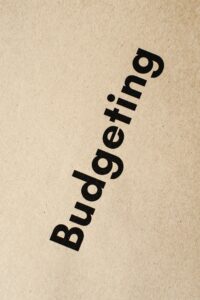
Written by R. A. Stewart
What is the difference between a need and a want?
To explain it in plain language a need is something we need for our day to day living such as food, shelter, clothing, and utilities, while a want is something we desire but can do without. It is all down to prioritising your spending.
Even a need is something which you have a measure of control over. We all need clothing but you do not have to purchase the most expensive clothes in order to meet this need. Your local charity shop will be able to supply you with appropriate clothing for a few dollars.
The same applies to food; you can meet this need by taking advantage of the specials in the supermarket and by not wasting food.
Money which is able to be saved by making smart purchases can be put to be used elsewhere. “Better in your pocket than someone else,” as the saying goes.
That does not mean you should just fritter away the money on something which you want.
Some people will try to reduce whatever they spend on a need in order to finance a want, none more so when we are talking about their hobbies and the things they are passionate about. Collectables are a prime example.
When you hear about the collections of some people whether that is dolls, beer labels, or whatever, you think that how can one person finance all of that? Some other area of their personal finances must suffer in order to pay for all of it; that may be travel or retirement savings.
We all have a choice of what we spend our money on at the supermarket and spending that money on good wholesome food is a wise investment. Can you spot any foods on this list that you may leave off your shopping list?
The difference between a need and a want can be subjective; for example a person who is addicted to alcohol, cigarettes, and drugs would categorize these items as needs but these are wants to someone who does not have to deal with these issues.
Needs
Housing
Clothing
Food
Water
Medical needs
Wants
Overseas holiday
Hobbies
Gambling
Expensive clothing
It is important to note that needs vary from one person to another and that your budget needs to be tailored to your own personal circumstances and not copied from someone else’s needs.
Before you spend money on expensive needs such as a vehicle, ask yourself, “What is the least expensive option?”

Purchasing a flash car just to impress your peers and to keep up with the Joneses is a mistake and will cost you in the long run.
A vehicle may be a need if you require it for transport but it becomes a want if you desire the most expensive model.
There can be consequences to not having your needs filled. It may result in illness and even death if your medical requirements are not met.
It is all a matter of getting your priorities in the right order and that requires wisdom. You do not have to experience something to know that it is bad for you; you just need to open your eyes and see the experiences of others and learn.
About this article
Feel free to share this article with others. You may use this article as content for your blog, website, or ebook.
www.robertastewart.com




